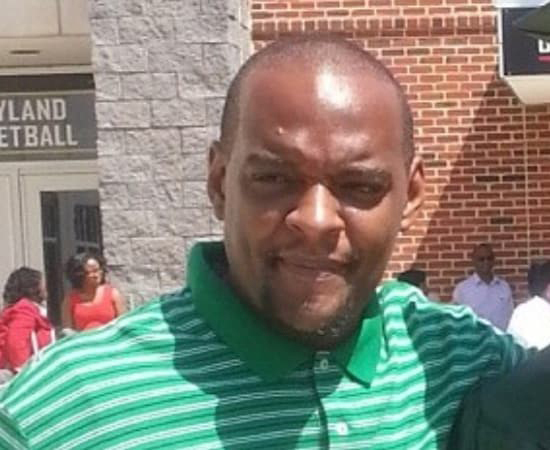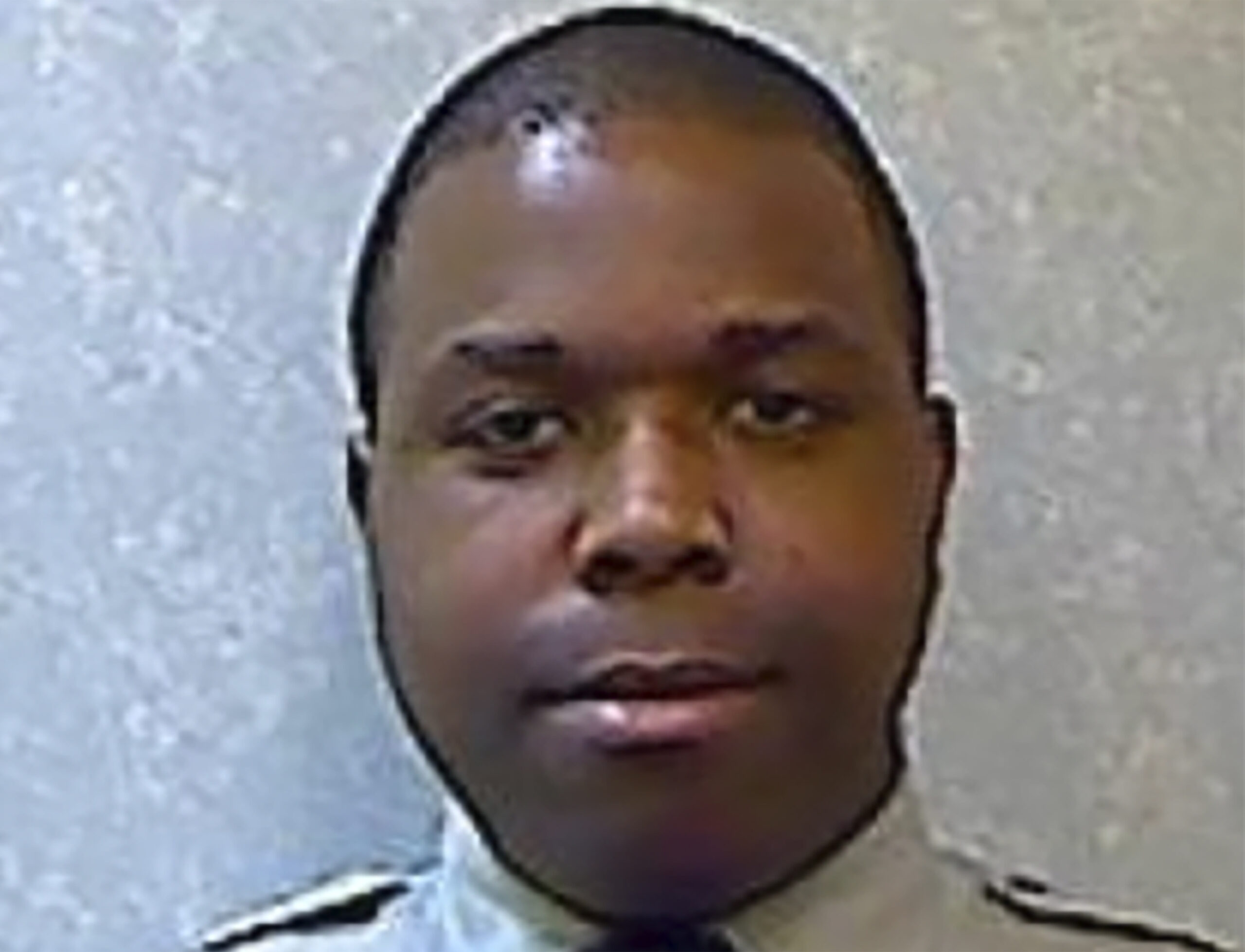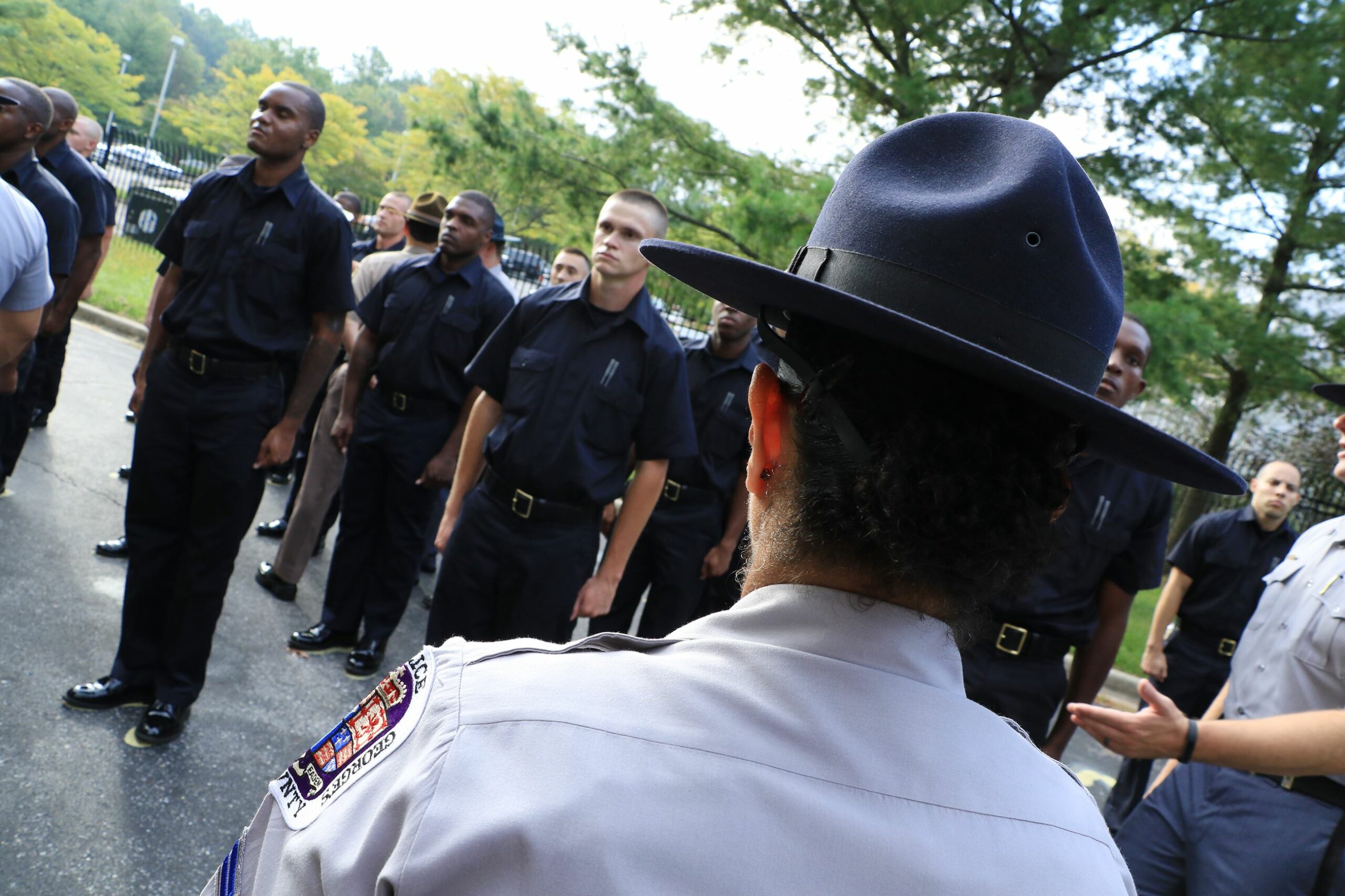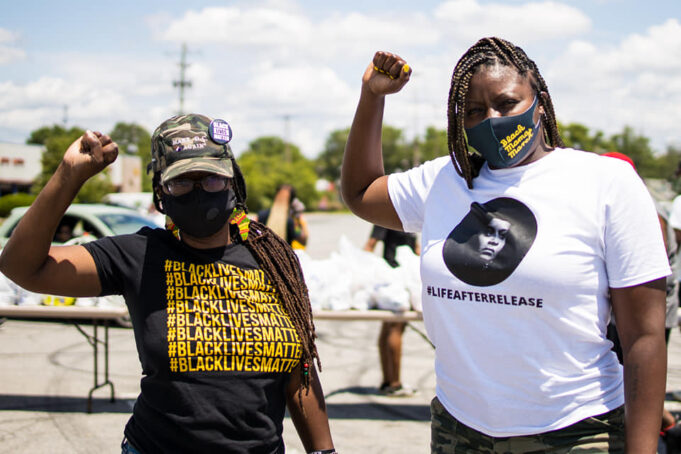Prince George’s County, Maryland, is one of the wealthiest Black communities in America. It has a 64.4 percent Black population and had a median household income of $81,969 in 2014-2018. But even the richest Black county is not immune to police brutality.
A Black man, William Green, was shot and killed by a police officer January 27, 2020. According to a statement by the law firm retained by Mr. Green’s family, he was driving his car when he accidentally hit three parked cars. Two officers arrived on the scene and found him asleep in his car. They proceeded to take him out of his car, searched him and arrested him. One of the officers, Corporal Michael Owen Jr., who was with the police department for 10 years, put Mr. Green in the front passenger seat of his police cruiser.
“Owen got into the driver’s seat and several minutes later, gunshots rang out. Owen shot William from point blank range seven times, striking him six times in the torso. According to eyewitnesses, Owen then got out of the police cruiser visibly nervous and in a panic,” the statement reads. “The other officers dragged William, who was still alive and moaning and gasping for air, from the police cruiser and put him on the ground with his hands still cuffed behind his back. William Green was pronounced dead shortly thereafter.”
Less than 24 hours later, Cpl. Owen, who is Black, was charged with second-degree murder, voluntary and involuntary manslaughter, first-degree assault, and use of a firearm in the commission of a crime of violence. He is currently in custody awaiting trial.
Two of Mr. Green’s children, a son and a daughter, his mother and others stood by the family’s lawyer at a Sept. 28 press conference announcing a $20 million settlement. The settlement is the largest in the state of Maryland and one of the largest in America for a police brutality incident.
This was not Prince George’s County first run-in with police brutality. In fact, Qiana Johnson, one of the co-organizers with Black Lives Matter D.C., can list incidents that occurred 20 years ago. Other abuses in this suburb of Washington, D.C., go back even further.

“Our police department over the last 20 years have been very notorious for the killing of Black and Brown men in our county, and more recently, the sexual abuse towards the Black woman have become very prominent within the department,” said Ms. Johnson.
Through her work in the community, she found out that her high school teacher, Dorothy Elliott, had a son who was shot and killed by police 20 years ago.
“It was so real to me, because I’m like, ‘Hey, that was my high school teacher,’ ” she said. “Then there’s the story of Marion Gray-Hopkins who also has not had any justice for her son Gary being shot in the head by police around 20 years ago as well. You fast-forward it to the case of Mr. Green and you can see that nothing has changed but the administration.”
In a 2017 case, one officer was found guilty of second-degree sexual assault. In August 2019, an officer punched a handcuffed man who was in the back of a police vehicle. He was sentenced to six months in jail.
In October 2019, a 24-year-old man was partially paralyzed in a police encounter. In another incident, an officer was suspended for theft and misconduct. A grand jury indicted both officers on Sept. 10. A few months ago in June 2020, a video showed three officers beating a man in an effort to detain him. The officers were suspended.
Outside of officer-involved incidents, several Hispanic and Black current and former officers with Prince George’s County Police Department filed a lawsuit alleging racial discrimination.
“We’re currently in the middle of a lawsuit against the Prince George’s County Police Department for racism and harassment of their own officers. Through that case, we have found that there have been at least almost 7,000 use-of-force complaints in just the last four years, and 99.6 percent of those complaints were deemed justified by the police department,” said Yanet Amanuel, a public policy advocate with the ACLU of Maryland. “We’re currently fighting to get the names of those officers and those complaints unredacted, because even defense attorneys believe that they should have access to this information, because it can lead to the exoneration of some of their clients.”

She noted that in the state of Maryland, the public does not have access to police misconduct records or investigatory records.
“In addition to that, we also have a Law Enforcement Officers’ Bill of Rights that only allows other sworn law enforcement officers to investigate an officer and only allows officers’ misconduct records that were unsustained be expunged after three years. So they have these special protections, and we have these laws that keep these records secret,” she said.
“In William Green’s case, the officer, Cpl. Michael Owen, had a history of use-of-force complaints. He had a history of falsifying charges after he was involved in various incidents where he did abuse people in the community,” she continued. “He was involved in a fatal shooting in 2011, and he was also collecting workers compensation after a bunch of these instances. Had the police department and had the community been able to have some oversight and transparency into these cases a decade ago and happily reprimanded him then, William Green’s murder could have been 100 percent prevented.”
So, how does the wealthiest Black county in America have such a deep-rooted problem with police?
“Unfortunately, the trauma of Black people period, historically, has led us to believe that we have to bootstrap and be a part of capitalism and we have to hide things and pretend as though things are not happening in order to protect our image,” Ms. Johnson said.
She called the belief a delusion.
“We’ve had problems with our census. We have problems with our voting. So if you are an activist in this community, as I am, and you live here and you grew up here and you went to school here, and for me, I’m formerly incarcerated, so I went to jail here,” she said. “You know all too well that that image that is being projected is a delusion, and you also know that every single county official will go to their grave first before they disrupt that title that we have been holding for so long, even though it’s not true.”
She said the problems are rooted in White supremacy and capitalism. Ms. Amanuel also commented on the link between police and White supremacy.

This undated file photo provided by the Prince George’s County Police Department shows Prince Georg’s County Police Department Cpl. Michael Owen Jr. Photo: Prince George’s County Police Department via AP, File
“There has been a history of policing issues in the county, but we know that policing issues started from the inception, because it’s rooted in White supremacy and originated from White people being recruited to track down and kill enslaved people,” she said.
She said the ACLU has been working with a coalition of 85 organizations to push five demands to address all the ways in which policing in Maryland is terrorizing Black and Brown communities.
“We believe in order to do that, we have to first shift power over law enforcement into the hands of the community by ending the police policing themselves. Because despite repeated efforts, the legislature in Maryland has failed to take meaningful steps,” she said.
The five demands include repealing the Law Enforcement Officers’ Bill of Rights, revising the Maryland Public Information Act to make police internal investigation records and misconduct records transparent, placing statutory limits on police use-of-force, removing police from schools and giving the county control over its own police department.
“Not fixing the policing issues in our community is not only costing Black people their lives in the streets, it’s also taking them in the courts, because we have wrongful convictions due to an officer lying in a statement,” she said. “It’s also costing taxpayers, because the settlement money is coming out of taxpayers’ dollars as well, and Maryland can’t continue to afford all of these settlements.”
As the executive director of Life After Release, an organization that supports formerly incarcerated women, Ms. Johnson said police brutality spills directly into the legal system in the form of mass incarceration. She also commented on how police in schools contribute to the school-to-prison pipeline.
“I don’t believe in reforming the system. I say shut it down and let’s get resources for our people. I say shut it down and get homeless shelters, get addiction centers, get reentry centers … mental health and also clinics,” she said. “I say shut it down and let’s get those things and be done with the system of policing.”
In June, Hank Stawinski, who was the department’s police chief, resigned, and Hector Valez stepped in as the department’s interim police chief. But Ms. Johnson said those were only surface actions.
“The police chief has stepped down, which I think is a whole bunch of baloney. And the reason why I feel like that is because he was rewarded for his bad behavior. He was allowed and given the opportunity and the privilege to step down, in the face of all of this stuff that he allowed to go on under his leadership,” she said.
“We always hear, ‘Oh, he’s just a bad apple.’ No, he’s not a bad apple. We have fruits from a poisonous tree. The tree is poisonous, and the fruit that it bears, all of them are poisonous,” she continued. “Shut them down and start with something that is community-based and defund them.”













